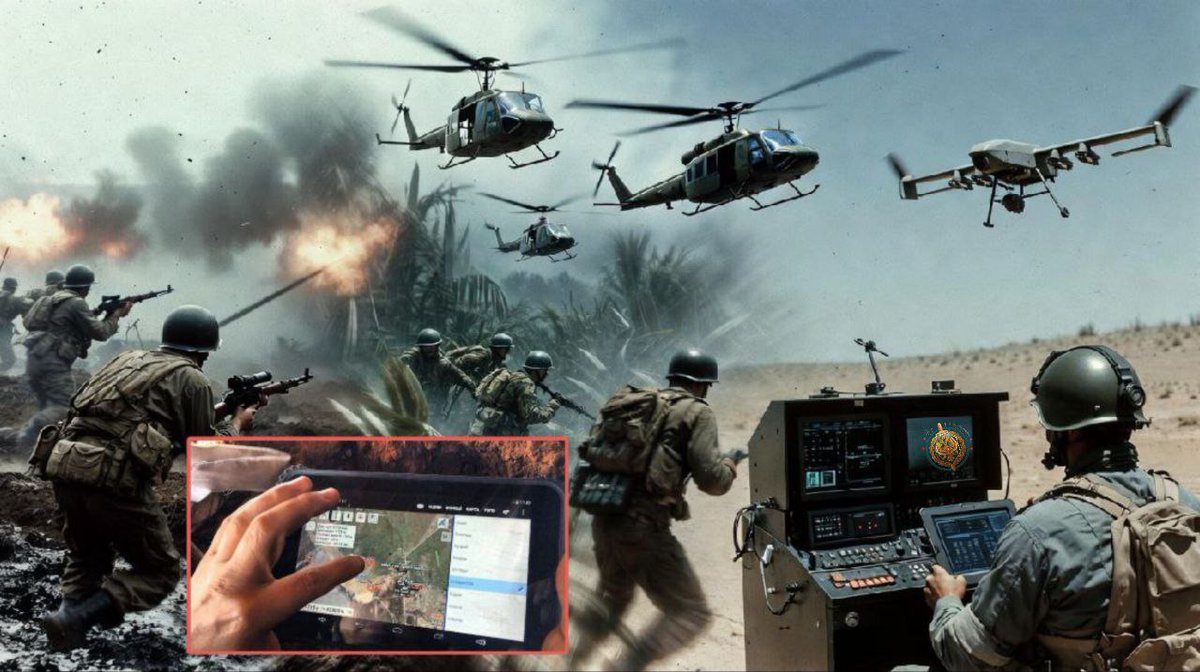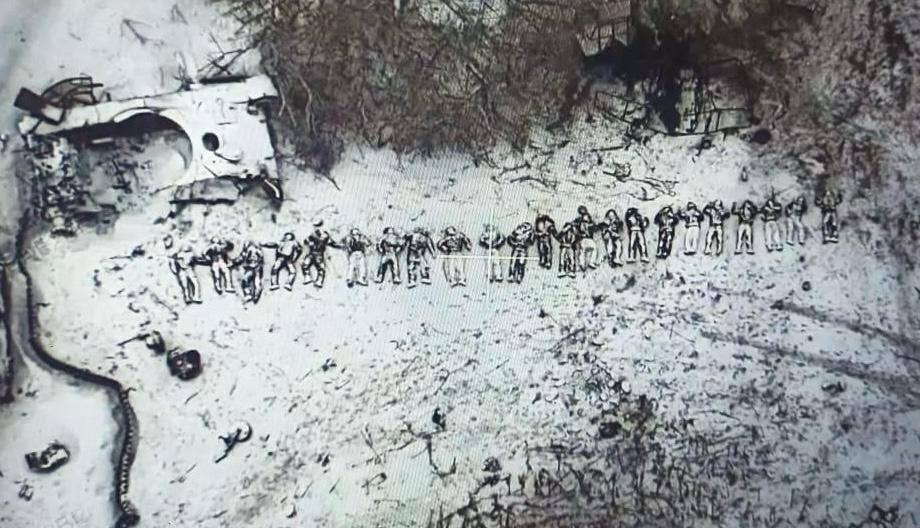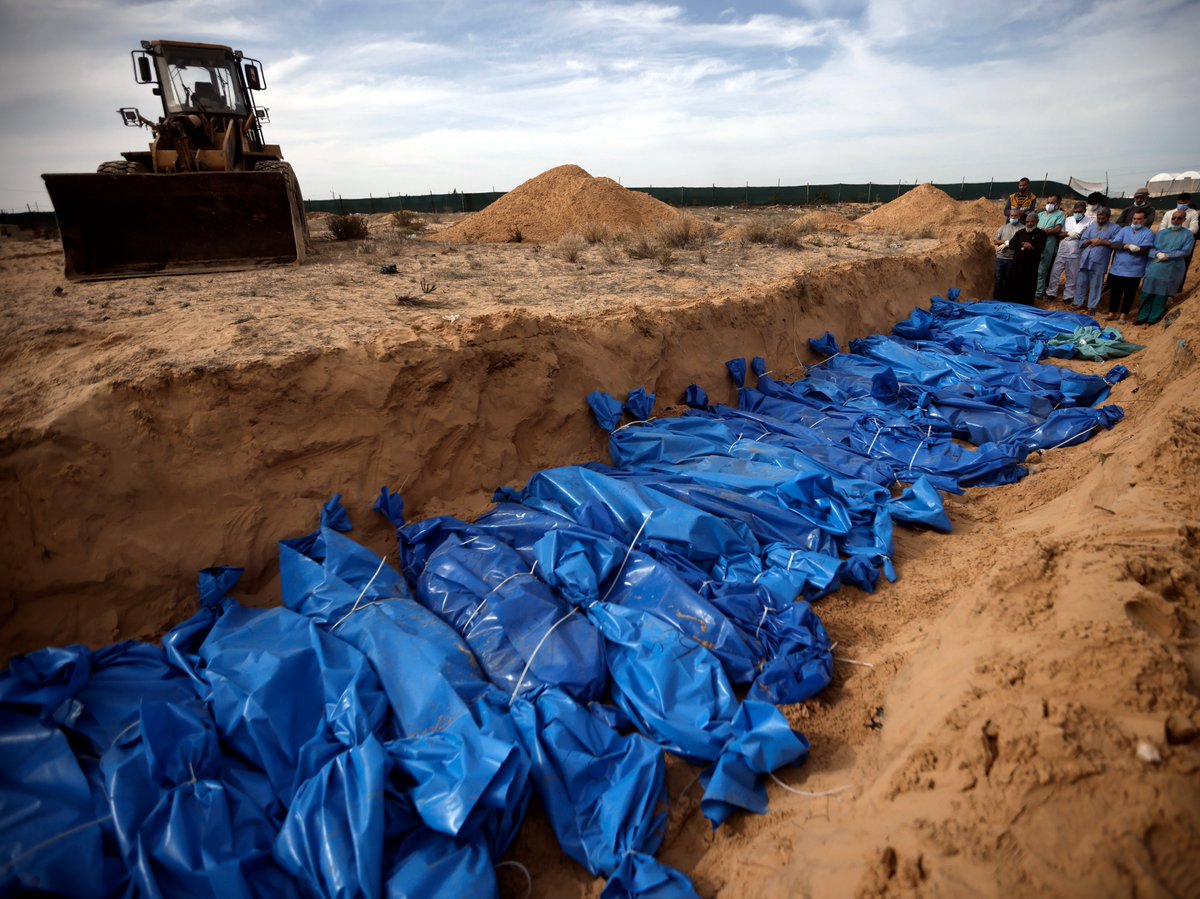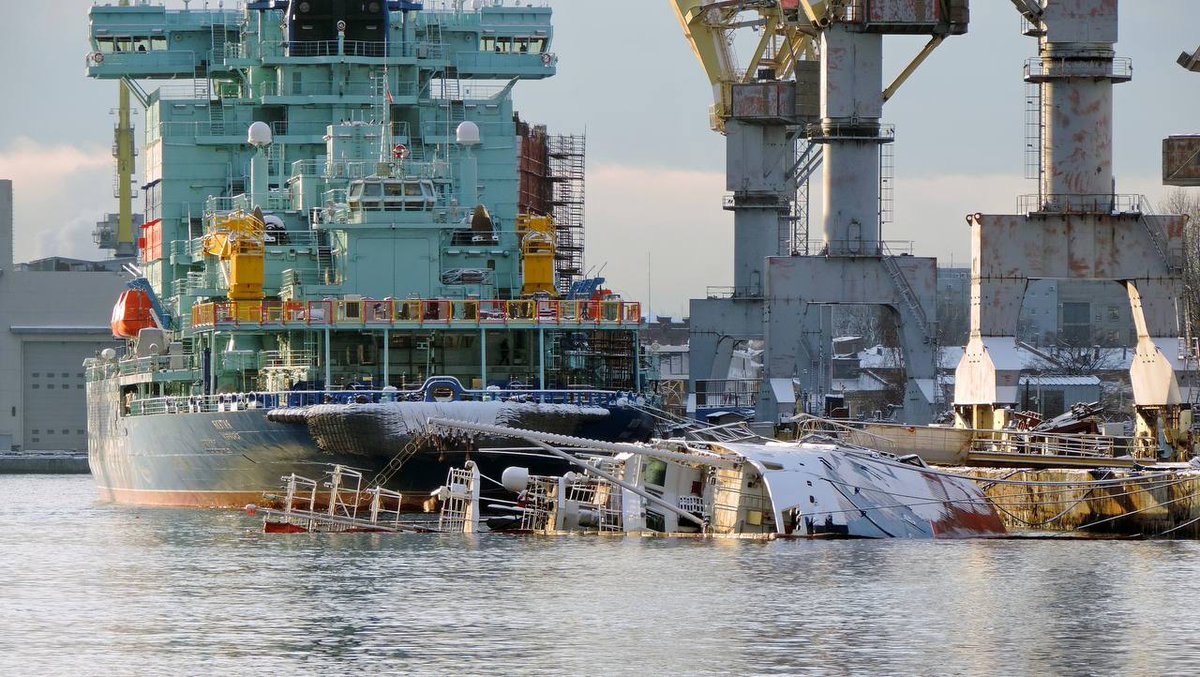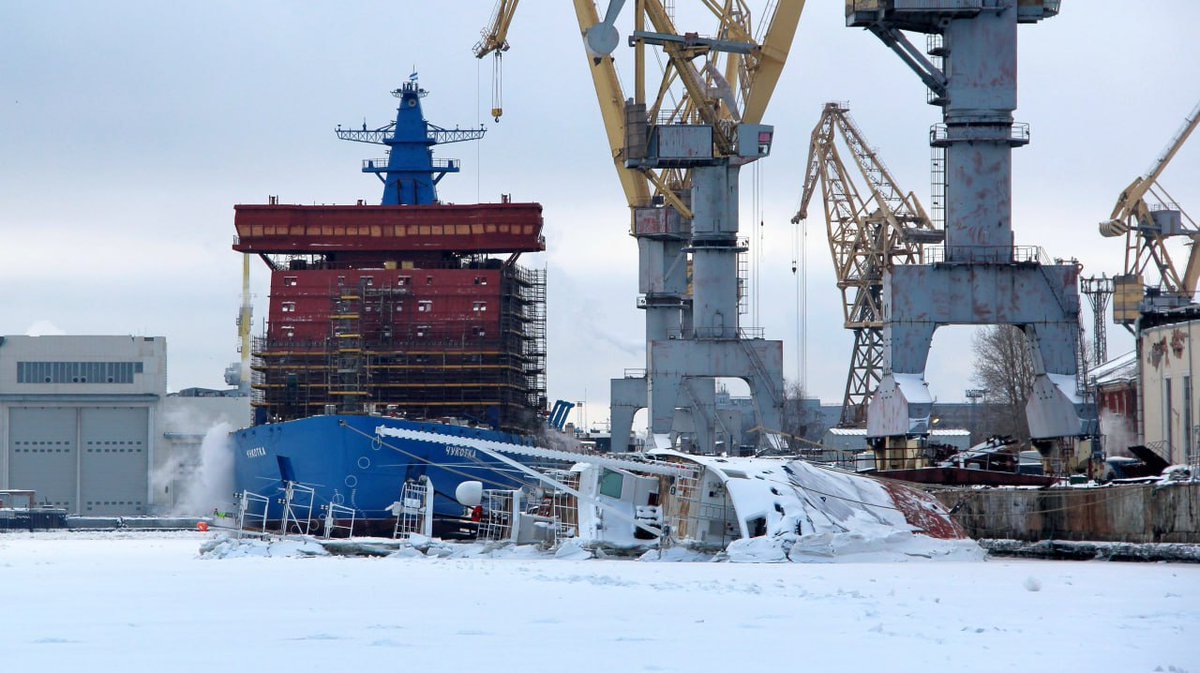1/ Hellish conditions on the front line in Ukraine have reportedly led to an upsurge in extrajudicial punishments in the Russian army, with soldiers being hanged from or tied to trees for days, forced to rape each other, or thrown naked into open pits in freezing temperatures. ⬇️ 

2/ Verstka reports on a series of interviews with frontline Russian troops over the past few months. Many have been fighting at the Ukrainian bridgehead at Krynky on the left bank of the Dnipro, which they describe as a scene of slaughter with 60-100 people dying every day. 

3/ "It's hell here," says one Russian soldier. "They're killing each other. The Ukranians are killing each other. The orders are stupid. Everyone understands that you can't succeed, but they send them to die anyway."
4/ Group after group was sent to assault Krynky since November 2023 and "almost no one came back ... This task was set constantly. During the whole time, a single person came [back] out of there. But they still sent and still send people there."
5/ On 20 February, Russian Defence Minister Sergei Shoigu claimed that his forces had recaptured Krynky. However, Russian marines fighting there have denied this. Verstka reports that 200 men died there on the day after Shoigu's announcement.
6/ Verstka's informant describes a situation in which the frontline Russian troops have established a brutal disciplinary regime while their commanders are absent in safe bunkers kilometers away. Notably, convict soldiers are "going wild" and treating mobilised men savagely. 

7/ "The shelling of our positions is still constant. During this time our convicts have completely lost their heads. They realise that everyone will die. That's why they torture ordinary guys, whoever they can," says an artillerymen. Some perceived offenders are lynched.
8/ "They are perverting themselves. Here they have organised a "zone" [prison colony] in the literal sense. They are operating on their own wavelength in [frontline] battalions, and their commanders are deep in the rear."
9/ The regime they have established reportedly includes murders, tortures and arbitrary imprisonment. In a video provided by an interviewee, four naked men are seen being humiliated while being filmed by several clothed soldiers, before being thrown into a pit on a frosty night.
10/ "For all to fucking see...", says one of the clothed soldiers. "I'll tell you where to go, fuck... Turn to the camera, fuck..." One of the naked men is punched in the face. "What are you doing, you fucking dog?" the first one shouts.
11/ "Don't move, everyone stand.... And you run to the fucking pit to copulate... Run, you fat fucking bitch." The naked men are then forced into a zindan or open-air pit, a medieval punishment that the Russian army revived in Ukraine in 2023.
https://twitter.com/ChrisO_wiki/status/1649795809821720578
12/ The men were said to have been punished for drinking and failure to follow orders. According to Misha Maltsev, who recorded the video above, their tormentors "make them have sex afterwards. They sit and watch it. Laughing, pissing on top of them. Like they're watching TV."
13/ Maltsev is a former convict who learned in Luhansk "what awaited me, but did not dare to run away. Then we were transferred to the Kherson direction, where the most brutal fuck-up began. The attitude was bestial, orders could not be fulfilled, everyone bullies each other."
14/ He says the situation is a "complete, solid mess" and that convicts like him were only given a fraction of the promised enlistment payments: "they fucked us over like they wanted." There is no rest or rotation, and no evacuation for the wounded or recovery of the dead.
15/ "They don't take the wounded out of here, no evacuation - they stitched them up, laid them down for a week and threw them back into the fight. Our boys are lying around, rotting, they don't take them away.
16/ "They are decomposing, bloated, there is nothing to help them, I don't know how their relatives will know."
Maltsev spent four days in a shell hole on top of corpses whose recovery had been forbidden by their commanders.
Maltsev spent four days in a shell hole on top of corpses whose recovery had been forbidden by their commanders.
17/ "He lived on the dead. He took cookies out of their pockets and ate them,” says another soldier.
In December 2023, Maltsev and his entire unit were killed in Krynky.
In December 2023, Maltsev and his entire unit were killed in Krynky.
18/ Brutal punishments are not just confined to Russian fighters. In January 2024, Serbian mercenary Dejan Berić recorded a video in which he complained that his fellow mercenaries were sent on an assault without grenade launchers and with only two magazines of bullets. 

19/ Berić says that the Serbs refused to join the assault and requested a transfer to another unit with “real Russian officers.” In response, all their ammunition and weapons were taken away, and the men – including those sick with pneumonia – were driven into the forest.
20/ They spent two days in the open in freezing cold without food or water and were not allowed to approach the kitchen. Military police came to the Serbs on 8 January, “accused them of espionage, opened fire in the dugouts,” and began beating the mercenaries with rifle butts.
21/ Berić's video caused a mini-scandal, and his unit was reportedly reassigned to the command of the Chechen Akhmat battalion. His house in Donetsk was burned down yesterday in an attack that he has blamed on his "enemies".
https://twitter.com/LXSummer1/status/1761091683922366546
22/ Other soldiers have reported being handcuffed or tied to trees for days at a time to 'motivate' them to fight. Such punishments are, at least in principle, completely against the Russian military code, but in practice, officers say the situation is more "elastic". 

23/ "Whether in my new military unit or in the 24th Motorised Rifle [Regiment], we have a complete ass, chaos, lawlessness, a swinish attitude towards people, and we ourselves are turning into embittered animals," one officer says.
24/ Others are more sanguine. An Airborne Forces officer says that "bullying is something the hohols [Ukrainians] do. We have educational work, cruel but fair. We don’t just fuck anyone." He points to the low quality of the army's recruits as making harsh discipline necessary.
25/ "There are a lot of mobiks here, men who signed a contract recently, and before that they were drinking in garages, and similar characters. Do they have discipline? No. To maintain discipline, you need to fuck them hard.
26/ "You can call it bullying, but for us it’s a job on which our lives depend.”
He admits, though, that at the front line "everything is one big unofficial punishment”.
He admits, though, that at the front line "everything is one big unofficial punishment”.
27/ “Pits, basements, bullshit, threats. Do you know how many 500s [deserters] there were in our direction last year? There are hundreds of them here. And what to do with them all? There aren't enough military police to clean up this shit.
28/ If you don't go to the assault, you go to the basement. It works."
(By "basement" he is referring to the Russian army's use of improvised prisons where soldiers are starved and beaten to force them to return to the front line.)
(By "basement" he is referring to the Russian army's use of improvised prisons where soldiers are starved and beaten to force them to return to the front line.)
https://twitter.com/ChrisO_wiki/status/1671253659668344832
29/ The officer's comments highlight the Russian army's apparently severe problems with desertion. On the one hand, an artilleryman says that it's very difficult to run away from the front line. "You have to go through a lot of lines. It’s not clear where you’ll run into anyone."
30/ Soldiers have instead taken the opportunity to flee while on visits to the rear, for example on trips to the hospital. The military authorities in the Kherson region have cracked down by stopping soldiers going to the hospital, even if they are wounded and need treatment.
31/ A soldier says that they "practically stopped taking people to the hospital from [Kherson region] in the winter of 2023. They don’t take you to the hospital even if you’re injured. They provided help, whoever was nearby, and then fed us breakfast. But there is no calm here.
32/ "Constant fighting. Sometimes a little less, sometimes a little more. They don't talk about losses in the news at all. And they must be assessed as catastrophic. They don't feel sorry for people at all. It's like they're not people. And this makes everyone around me go wild."
33/ The soldier suggests that his unit is deliberately hiding the scale of its desertions – some of whom may have surrendered – likely to avoid commanders facing embarassing questions, in an example of the Russian military's ingrained culture of lying.
https://twitter.com/ChrisO_wiki/status/1570169288849326082
34/ "[These are] cards of my missing guys, who were in the group at first, and then they were simply deleted! I accidentally managed to save a few. This is only a small number, they are simply cleared from the database so as not to be looked for."
35/ The soldier says that his experience of war is worse than he could ever have imagined. "I used to watch war movies before, and it was creepy. But after seeing everything that is happening here, all the most terrible things from the cinema seem like kindergarten."
36/ "I didn't realise that in the 21st century people could be treated like that. I didn't realise what people are capable of. It's really better in hell than in our war."
Source:
verstka.media/vnesudebnie_ra…
Source:
verstka.media/vnesudebnie_ra…
• • •
Missing some Tweet in this thread? You can try to
force a refresh


